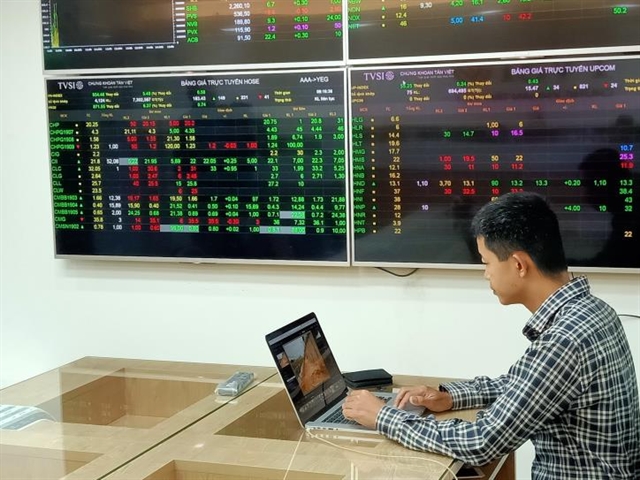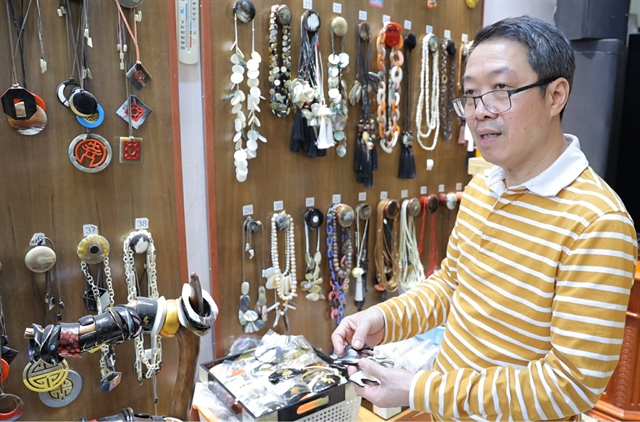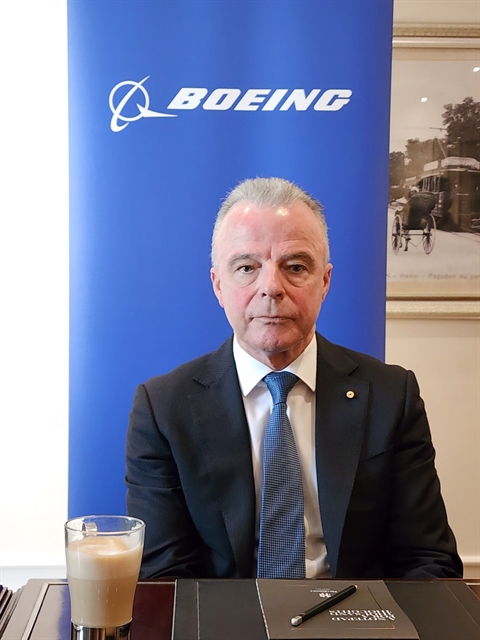 Economy
Economy

 |
| Senior Vice President of the Boeing Company Brendan Nelson. VNS Photo Lê Việt Dũng |
The global giant Boeing inaugurated its new permanent office in Hà Nội on May 12. Its purpose, as Boeing's senior vice president Brendan Nelson said, is to house the company's growing workforce and to demonstrate its long-term commitment to aviation in Việt Nam.
Dr. Brendan Nelson spoke to Việt Nam News reporter Lê Việt Dũng about Boeing's operation in the country in light of the office's inauguration.
Việt Nam will be the world's 5th fastest-growing aviation market by 2035. How does Boeing plan to capitalise on this growth, and what opportunities do you see for the company in the country's aviation industry?
We have a significant presence in 20 countries outside the United States and a presence in another 35. Việt Nam is one of our most important countries - it is one of those 20.
The International Air Transport Association (IATA) estimates that by 2035 there will be 150 million passenger movements in Việt Nam. And three years after that, in 2038, it will be 205 million.
We have made a commitment to Việt Nam, to its people, and to the aviation industry. We have now established a permanent office in Hà Nội, and our ten permanent staff in the office will grow in number.
This includes a master pilot, specialists in safety and air aviation regulation, and specialists in supply chain development.
We currently have six suppliers in the country. We want to grow those numbers and are working directly with five Vietnamese suppliers to train them in getting to the safety and technical standards necessary to join our supply chains.
We held the first Boeing Vietnam Aviation Industry conference last year. It attracted 100 companies, suppliers, and universities. In March, we held a four-day seminar to provide training and assistance in every aspect of airport and aviation management. We also held a suppliers’ conference.
And we are doing everything we can to assist Vietnamese airlines in operations and in the acquisition of new aircraft.
Major airlines are getting more serious about hydrogen-powered planes and Việt Nam is expected to produce around 20 million tonnes of the chemical by 2050. How does Boeing plan to help the country position itself as the leading hydrogen supplier for global airlines?
The Vietnamese Government has committed to net zero by 2050. We share this ambition. We are completely committed to decarbonising aviation, and every aspect of aviation in the manufacturing of aircraft, in the management of energy and waste, and in the use of fuels.
We admire the vision of the Vietnamese Government in working and investing in hydrogen. Boeing has been doing a lot of work testing hydrogen-powered and electric-powered aircraft.
In the near term, over the next 30 years, the key solution is sustainable aviation fuel (SAF). We have almost completed a detailed study of the production of SAF, feedstock, sources, and its production and distribution in Southeast Asia.
This is an area where we would like to work with Việt Nam because the country is ideally placed for the feedstock for SAF, and perhaps for its production.
We would like to explore with Việt Nam how we can work together for the production and uptake of SAF for aviation while seeing a longer-term place for hydrogen.
How does Boeing plan to support domestic suppliers?
We have six existing suppliers in Việt Nam and are working with five others to bring them up to speed. The companies are mainly what we call Tier 2 and Tier 3. Our ambition is to get more of those and get others to Tier 1.
Our responsibility is to help train Vietnamese companies to meet the quality, safety, and certification standards that are required to be part of our supply chain. We have already run one big supplier safety and quality seminar in this regard.
We have sought interest from Vietnamese companies in becoming Boeing's suppliers and are always interested in hearing from those coming to our permanent office to find out how to become one.
Regarding the current suppliers that we have in the country, about 95 per cent of their workers, professionals, and managers are Vietnamese people.
It appears that Việt Nam has an interest in Boeing's defence products. Has there been any arrangement between the country and Boeing in this regard?
Regarding defence equipment, we have already provided ScanEagles, our unmanned aerial vehicles, to the Vietnamese Coast Guard.
If the Vietnamese Government would wish to speak to us about items like helicopters for humanitarian and disaster relief, and assistance for the military, we would be willing to do so. But these are also matters for discussion between the Vietnamese Government and the United States Government.
Việt Nam's Prime Minister has asked Boeing to support the country's aerospace industry by building aircraft maintenance centres in Chu Lai, Quảng Nam Province. What is your comment on this?
We have listened to the Vietnamese Government regarding the request for us to consider certain locations, including Chu Lai. We would give it serious consideration but do not have any decision to have a maintenance facility in Chu Lai or any other places at this time.
We are working with potential partners in Việt Nam, including airlines, to consider having a maintenance centre to support our customers. Part of the consideration is to have a critical mass of Boeing aircraft in need of maintenance. — VNS